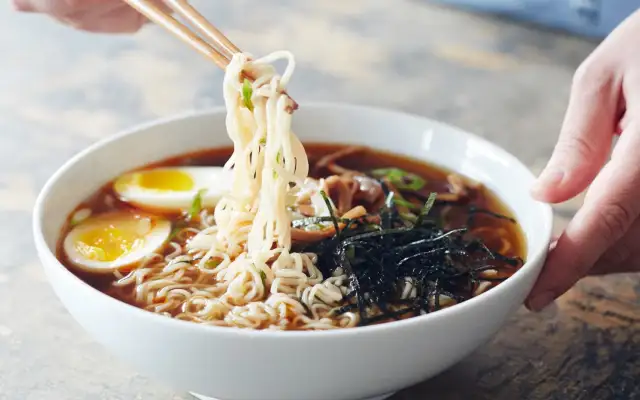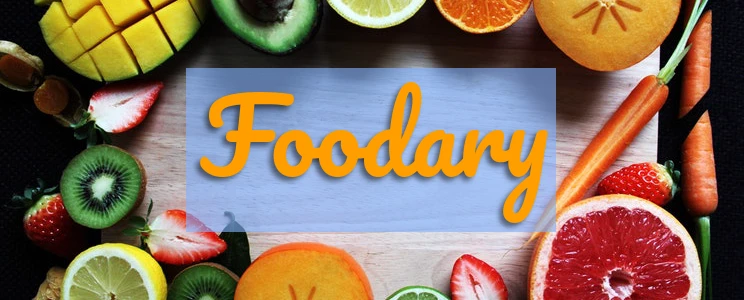
Ramen Noodles and Acid Reflux
Foodary visitors are concerned – “Can I eat ramen noodles with acid reflux?”
So I’ve looked at some recent studies of ramen noodles and acid reflux. Which reveal the answer to be “No”. But always remember that these studies are based on the average experiences of groups of people. Whereas you have your own medical history and test results.
Therefore, you should view this article as something to discuss with your professional health advisers. Because the Purpose of Foodary.com is to support your relationship with your doctor. In particular, you should pay close attention to the “is chicken noodle soup good for acid reflux” section below.
Ramen Noodles and Acid Reflux Studies
- Studies.
- Instant Noodles.
- GERD & Ramen.
- Summary.
- Chicken Noodle Soup FAQ.
- Noodles & Your Acid Reflux.
- Related Topics.
Related Topics are often very useful
if search results brought you here and
this isn’t exactly what you need.
I’ve reviewed 2 studies about Ramen Noodles and Acid Reflux. At this time, I’ve selected lists of likely candidates for acid reflux revealed by those studies. However, this is not a comprehensive review. So if you would like more details, please ask in the Feedback Form below.
Instant Noodles & Acid Reflux
The first study shows noodles to be the most aggravating food for acid reflux[1]. With the complete list of aggravating foods being noodles; spicy foods; fatty meals; sweets; alcohol; citrus fruits; breads; carbonated drinks; and caffeinated drinks. For noodles, different types of noodles are listed with the percentage of acid reflux cases:
- Ramen (instant noodles) – 52.4%
- Noodles with stir-fried bean paste – 35.7%
- Noodles with Chinese-style hotchpotch – 33.3%
- Clear soup with wheat flakes – 23.8%
- Handmade knife-cut noodles – 21.4%
- Spaghetti – 19.0%
- Cold noodles served with hot and spicy sauce mix (Bi bim naeng myun) – 16.7%
- Udon – 11.9%
- Cold noodles served in cold beef soup (Mool naeng myun) – 7.1%
- Plain noodles – 4.8%
- Buckwheat noodles – 2.4%
Noodles, spicy foods, fatty meals, sweets, alcohol, breads, carbonated drinks and caffeinated drinks were associated with symptom aggravation in GERD [GastroEsophageal Reflux Disease]. Among the investigated noodles, ramen caused reflux-related symptoms most frequently.
GERD & Ramen
In a similar study, ramen noodles are joint top of the most aggravating foods for acid reflux. Sharing the top position with hot spicy stews[2]. In this study there are lists for acid reflux patients and also possible sufferers. Here, I’ve shown the list for acid reflux patients only, with percentages of patients affected by the most aggravating foods:
- Hot spicy stews – 84.2%
- Ramen noodles – 84.2%
- Fried foods – 75.0%
- Rice cakes – 73.7%
- Biscuits – 64.3%
- Breads – 63.2%
- Hand-pulled dough soups – 60.0%
- Topokki – 56.3%
- Hamburgers – 56.3%
- Doughnuts – 55.6%
- Spicy noodles with vegetables and seafoods (champon) – 55.6%
- Noodles with stir-fried bean paste (jajangmyeon) – 55.6%
- Alcohols – 54.5%
- Fanta beverages – 54.5%
- Pizzas – 53.3%
- Mandarins – 52.6%
- Plain noodles – 52.6%
- Oranges – 50.0%
- Milk – 50.0%
In conclusion, hot spicy stews, rice cakes, ramen noodles, fried foods, and topokki are most common foods that induce typical GERD symptoms in Korean GERD patients.
Ramen Noodles & Acid Reflux Summary
These studies show that ramen noodles are a common cause of acid reflux symptoms. But you should note the comparison between the studies. Because they agree that ramen noodles are a common trigger for acid reflux symptoms. But not all people are affected in this way.
In a later study, researchers showed that exercise after eating could trigger acid reflux[3].
Postprandial exercise increased TLESR [Transient Lower Esophageal Sphincter Relaxation] with acid reflux and GERD [GastroEsophageal Reflux Disease] patients should be encouraged to avoid exercise immediately after a meal.
Therefore, if you do eat ramen noodles, you should wait for your meal to digest before exercising.
Is chicken noodle soup good for acid reflux?
Finally, I’ve noticed that many Foodary visitors are worried about chicken noodle soup and acid reflux. Now I see this problem in many food-related diseases. Where the sufferer gets fixated on one or two foods. But ignore questions about their total diet. But this is wrong. Because people rely on total diet for general health. So the correct approach is to form a balanced diet with your doctor or other health professional. Then you can discuss specific foods such as chicken noodle soup.
More importantly, you should start these discussions today. Because delay in treating acid reflux is a common cause of unnecessary disease progression. Fennerty provides an excellent summary of this basic acid reflux diet problem[4]:
Patients should avoid fatty foods and large meals that increase esophageal acid exposure, and they should not eat for at least 3 hours before lying down. Weight loss may decrease “stress reflux.” These modifications should be discussed and encouraged at every opportunity. However, the clinical efficacy of lifestyle modifications alone remains limited, and relying on lifestyle modification alone often results in continued symptoms and in an adverse impact on quality of life; therefore, most patients require further therapy.
Can you eat Ramen Noodles with Acid Reflux?
These studies show that many acid reflux sufferers cannot eat ramen noodles. But your situation is unique to you. So see this as something to discuss with your doctor if you suspect that ramen noodles might trigger your symptoms.
Leave Ramen Noodles and Acid Reflux to read more Nutrition Facts from Foodary.
Ramen Noodles and Acid Reflux Related Topics
Please remember: to find more related pages that are relevant to you, use the search box near the top of every page.
Other posts that include these terms:
Ramen Noodles and Acid Reflux References
- Song, Ji Hyun, Su Jin Chung, Jun Haeng Lee, Young-Ho Kim, Dong Kyung Chang, Hee Jung Son, Jae J. Kim, Jong Chul Rhee, and Poong-Lyul Rhee. “Relationship between gastroesophageal reflux symptoms and dietary factors in Korea.” Journal of neurogastroenterology and motility 17, no. 1 (2011): 54.
- Choe, Jung Wan, Moon Kyung Joo, Hyo Jung Kim, Beom Jae Lee, Ji Hoon Kim, Jong Eun Yeon, Jong-Jae Park, Jae Seon Kim, Kwan Soo Byun, and Young-Tae Bak. “Foods inducing typical gastroesophageal reflux disease symptoms in Korea.” Journal of neurogastroenterology and motility 23, no. 3 (2017): 363.
- Iovino P, Theron B, Prew S, Menon S, Trudgill N. The mechanisms associated with reflux episodes in ambulant subjects with gastro-esophageal reflux disease. Neurogastroenterol Motil. 2020 Oct 28:e14023. doi: 10.1111/nmo.14023. Epub ahead of print. PMID: 33112052.
- Fennerty, M. Brian, Donald Castell, A. Mark Fendrick, Michael Halpern, Daniel Johnson, Peter J. Kahrilas, David Lieberman, Joel E. Richter, and Richard E. Sampliner. “The diagnosis and treatment of gastroesophageal reflux disease in a managed care environment: suggested disease management guidelines.” Archives of internal medicine 156, no. 5 (1996): 477-484.
